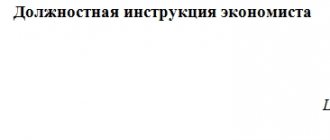Employers have always been interested in maximum productivity from employees while working. At the same time, in order to avoid abuse of power, as well as in order to determine the rights and obligations of the parties to labor relations, the legislator clearly defined how many and in what cases an employee can be used to perform labor functions outside the normal duration of work. Let's look at the cases in which forced labor is permitted in the Russian Federation.
Prohibition of forced labor
The concept of forced labor should be understood as a situation where, under the threat of any negative actions on the part of the employer, an employee, against his will, is forced to perform labor duties.
It should be noted that this concept, in addition to direct coercion, also covers some related actions that directly or indirectly interact with coercion:
- the need to maintain a high level of labor discipline;
- curtailing the right of employees to participate in a strike by forcing them to perform work;
- when it is necessary to increase the level of productivity or economic efficiency of the company;
- regarding citizens who have political, religious views or beliefs different from the majority;
- to citizens who differ in social status, nationality, religion, gender.
It should be noted that coercion to perform certain actions can be recorded both outside normal working hours and directly during the employee’s work activity. It is important to note here that only those activities can be defined as forced, the implementation of which is not provided for by the employment agreement or during which the life, health, or reputation of a citizen is in danger. Either he is offered to perform an initially criminal or administratively punishable act, for which legal liability may be applied to him personally.
The ban on forced labor is directly defined by the main law of the country - the Constitution of the Russian Federation. This norm is enshrined in Art. 37 of the Constitution. Additionally, the ban on forced activity, but in a broader definition, is written out in Art. 4 Labor Code of the Russian Federation.
Thus, the legislator significantly limited the desire of company administrations to increase profits through excessive exploitation of labor. Even if increased remuneration will be paid for such actions in the future.
Remember, it is prohibited by law to force citizens to work both during regular and additional hours. For this, a negligent employer will face legal liability.
Acceptable cases of forced labor in international human rights instruments
“Personnel officer. Labor law for personnel officers", 2011, N 6
ACCEPTABLE CASES OF FORCED LABOR IN INTERNATIONAL LEGAL ACTS ON HUMAN RIGHTS
According to the author of the article, if the Russian Federation takes the path of directly applying the norms of the ILO Convention “On Forced or Compulsory Labor”, national legislation should be supplemented in specific cases with the guarantees provided for by this Convention.
The Constitution of the Russian Federation in Part 2 of Art. 37 clearly and unequivocally prohibits the use of forced labor in the Russian Federation. A similar rule is contained in Art. 4 Labor Code of the Russian Federation. At the same time, this article also contains a list of cases that are not forced labor (despite the fact that they formally fall under the definition of forced labor contained in the Labor Code of the Russian Federation and international legal documents). These include:
- work, the performance of which is stipulated by the legislation on conscription and military service or an alternative civil service replacing it;
- work, the performance of which is conditioned by the introduction of a state of emergency or martial law in the manner established by federal constitutional laws;
- work performed under emergency circumstances, i.e. in the event of a disaster or threat of disaster (fires, floods, famine, earthquakes, epidemics or epizootics) and in other cases threatening the life or normal living conditions of the entire population or part of it ;
- work performed as a result of a court verdict that has entered into legal force under the supervision of government bodies responsible for compliance with the law in the execution of court sentences.
In this case, the authors of the Labor Code of the Russian Federation were not original, since similar lists of cases of acceptable forced labor are contained in such fundamental international legal documents as the International Covenant of December 16, 1966 “On Civil and Political Rights”, the Convention for the Protection of Human Rights and fundamental freedoms (concluded in Rome on November 4, 1950), ILO Convention No. 29 of June 28, 1930 “Concerning forced or compulsory labor” (ratified by the Decree of the Presidium of the Supreme Soviet of the USSR of June 4, 1956).
Thus, the current legislation and international legal documents allow us to talk about the existence of two forms of forced labor: permitted and unauthorized. Indicative in this regard are Art. Art. 11 - 17 of the ILO Convention “Concerning Forced or Compulsory Labour”, which deals with the conditions for engaging in forced or compulsory labor despite the general prohibition of such labor.
Is forced labor allowed?
It turns out that, in fact, forced labor in certain cases is permitted by both Russian legislation and international legal norms, however, the authors of the relevant documents avoid calling it forced labor.
It should also be noted that in Art. 4 of the Labor Code of the Russian Federation, and in the specified international legal acts, when defining lists of cases that are not forced labor, formulations are used like: “for the purposes of this Code, forced labor does not include”, “the term “forced or compulsory labor” in this paragraph does not are covered,” “for the purposes of this article, the term “forced or compulsory labor” does not include”; “the term “forced or compulsory labor” within the meaning of this Convention does not include”, etc. In other words, permitted cases of forced labor still remain forced labor, but in specific situations in order to avoid identification with prohibited cases of forced labor , they are separated from forced labor.
Accordingly, we can conclude that the de facto limitation of the principle of freedom of labor in any case is forced labor, which is divided into those permitted by law and those prohibited by it. However, de jure in the constitutional and legal sense, restrictions on the principle of freedom of labor are only cases of forced labor provided for by law, while forced labor in the narrow sense of the word is always prohibited.
Comparing the provisions of Art. 4 of the Labor Code of the Russian Federation, establishing which cases of forced labor are permissible in the Russian Federation, and the corresponding norms of the above international legal documents, it is easy to notice that the list used in the Labor Code of the Russian Federation is more concise. It is difficult to say why during the preparation of the Labor Code of the Russian Federation, which, as is known, was developed with the participation of the International Labor Organization [1], they were omitted by the authors of the Code.
However, in any case, it seems, based on Part 4 of Art. 15 of the Constitution of the Russian Federation, according to which generally recognized principles and norms of international law and international treaties of the Russian Federation are an integral part of its legal system, they must be taken into account on the territory of the Russian Federation. The same position is shared by the Constitutional Court of the Russian Federation, which in many of its decisions refers precisely to the norms of international legal acts establishing permitted cases of forced labor.
In particular, the International Covenant on Civil and Political Rights establishes that any work or service that is part of ordinary civil duties is not forced labor. Similar provisions are contained in the Convention for the Protection of Human Rights and Fundamental Freedoms and the ILO Forced or Compulsory Labor Convention.
Ordinary civic duties
What is included in ordinary civil duties is not explained in any of these international legal documents. This category has not been studied in the domestic legal literature. At the same time, certain conclusions about its content can be drawn based on the practice of the European Court of Human Rights, which has repeatedly referred to the relevant provisions of the Convention for the Protection of Human Rights and Fundamental Freedoms.
For example, in the ECtHR ruling in the case “Zarb Adami v. Malta” [2], the European Court stated that the compulsory performance of jury functions, as is the case in Malta, is one of the “ordinary civil duties” provided for pp. "d" clause 3 of Art. 4 of the Convention. In the case “Karlheinz Schmidt v. Germany” [3] the European Court proceeded from the fact that the compulsory service in the fire brigade, existing in Baden-Württemberg, can be qualified as service forming part of civil duties, according to paragraphs. "d" clause 3 of Art. 4 of the Convention. The fee paid in lieu of this service is a compensation payment. It is closely related to the obligation to serve in the fire brigade, therefore payment of the fee falls under paragraphs. "d" clause 3 of Art. 4 of the Convention (clause 23).
Free legal assistance
The legislation of the Russian Federation provides for the duty of a lawyer to provide free legal assistance to certain categories of citizens.
So, in accordance with clause 2, part 1, art. 7 of the Federal Law of May 31, 2002 N 63-FZ “On advocacy and the legal profession in the Russian Federation” (as amended on July 23, 2008, hereinafter referred to as the Law on Advocacy), a lawyer is obliged to “fulfill the requirements of the law on the mandatory participation of a lawyer as a defense attorney in criminal cases.” legal proceedings as assigned by the inquiry bodies, preliminary investigation bodies or the court, as well as provide legal assistance to citizens of the Russian Federation free of charge in cases provided for by this Federal Law.”
Of undoubted interest in relation to Russian practice are the conclusions made by the European Court in the case “Van der Mussele v. Belgium” [4].
Example. The court considered the complaint of the applicant, who, as a trainee lawyer, was required to defend a client for free and was not reimbursed for the associated costs. According to Mr Van der Mussele, this constituted “forced or compulsory labour”, incompatible with the provisions of Art. 4 of the Convention.
However, the Court considered that in this case it was impossible to discern the presence of an important sign of forced labor - the absence of voluntary consent to perform work, and, therefore, there was no violation of paragraph 2 of Art. 4. According to the Court, the applicant agreed in advance to what was the subject of his complaint, since the future lawyer, even before starting his career, weighs all the pros and cons of this profession. The applicant was aware in advance of the obligation to defend clients free of charge, which implied certain quantitative (about 14 cases annually) and qualitative (during the internship) restrictions. Mr. Van der Mussele also knew about the corresponding advantages - the freedom he enjoys in the exercise of his duties, the opportunity to become familiar with the work of the court, to create a paying clientele.
In addition, the Court noted that such assistance is based on the concept of social solidarity and cannot be considered an unreasonable burden. In addition, it represents an obligation of the same order as ordinary civil duties provided for in paragraphs. "d" clause 3 of Art. 4. According to the Court, the burden placed on the applicant cannot be considered disproportionate [4].
According to Art. 26 of the Law on the Bar, legal assistance to citizens of the Russian Federation whose average per capita family income is below the subsistence level established in a constituent entity of the Russian Federation in accordance with federal legislation, as well as to citizens of the Russian Federation living alone whose income is below this value, is provided free of charge in the following cases:
1) plaintiffs - in cases considered by the courts of first instance regarding the collection of alimony, compensation for damage caused by the death of the breadwinner, injury or other damage to health related to work activity;
2) veterans of the Great Patriotic War - on issues not related to business activities;
3) citizens of the Russian Federation - when drawing up applications for pensions and benefits;
4) citizens of the Russian Federation who have suffered from political repression - on issues related to rehabilitation.
In addition, legal assistance is provided in all cases free of charge to minors held in institutions for the prevention of neglect and juvenile delinquency.
Considering that in most cases the laws of the constituent entities of the Russian Federation provide only for compensation of a lawyer’s expenses when providing free legal assistance, but not payment for his work [5], at first glance, this work can be considered as forced labor in the sense of Art. 4 of the Labor Code of the Russian Federation (taking into account the fact that Russian labor legislation does not highlight such a sign of forced labor as the lack of consent to provide services).
However, it appears that, taking into account the conclusions made by the European Court in the case of Van der Mussele v. Belgium, legal aid is not such, since, firstly, the provisions of the ILO Convention “Concerning Forced or Compulsory Labor” as an international treaty ratified by the Russian Federation , have the force of Part 4 of Art. 15 of the Constitution of the Russian Federation has greater legal force than the Labor Code of the Russian Federation, including in relation to the definition of forced labor; secondly, the provision of free legal assistance by lawyers to certain categories of citizens falls under the concept of “ordinary civil duties”, the performance of which is not forced labor by virtue of the same ILO Convention, as well as other international legal documents.
Small community work
The ILO Forced or Compulsory Labor Convention also contains another example of forced labor that is not considered by it to be forced or compulsory labor.
According to paragraph “e” of Part 2 of Art. 2 of the Convention, the term “forced or compulsory labor” in the sense of this Convention also does not include minor work of a communal nature, that is, work performed for the direct benefit of the collective by members of this collective and which therefore can be considered ordinary civil duties of members of the collective, provided that that the population itself or its direct representatives have the right to express their opinion regarding the appropriateness of these works.
Despite the fact that this example of permitted forced labor is not provided for by the Labor Code of the Russian Federation, the Constitutional Court of the Russian Federation has repeatedly addressed it in its acts.
Example. In the Determination of the Constitutional Court of the Russian Federation dated March 24, 2005 N 190-O “On the refusal to accept for consideration the complaint of citizen Alexander Vitalievich Konyaev about the violation of his constitutional rights by Article 106 of the Criminal Executive Code of the Russian Federation,” the Court indicated that the status of convicted persons provided for by the criminal executive legislation presupposes the need for them to comply with the rules accepted in society, which create the basis for establishing the obligation of convicts to ensure proper order, including compliance with the rules of sanitation and hygiene, in the places of their residence and work. These rules presuppose the obligation for convicts to carry out work related to the improvement of the places where they serve their sentences, which, as follows from Art. 2 (paragraph “e” paragraph 2) of the ILO Convention “Concerning Forced or Compulsory Labor” and Art. 4 (paragraph “d” paragraph 3) of the Convention for the Protection of Human Rights and Fundamental Freedoms of November 4, 1950, cannot be regarded as forced or compulsory labor, since work of a communal nature, performed for the direct benefit of the collective by members of this collective, is considered their usual civil responsibilities.
Example. In another case, the subject of consideration by the Constitutional Court was the constitutionality of Art. 32 of the Law of the Republic of Adygea “On Administrative Offences”, according to which violation of the regime for mowing weeds and quarantine vegetation in the territories of private households, dachas, municipal housing stock, organizations and adjacent territories, as well as in areas allocated for development, entails a warning or imposition an administrative fine for citizens in the amount of one to five times the minimum wage, for officials - from 5 to 50 times the minimum wage, for legal entities - from 10 to 50 times the minimum wage.
According to the applicant, Art. 32 of the Law of the Republic of Adygea “On Administrative Offenses” forces citizens to mow down weeds and quarantine vegetation on land owned by the municipality, which violates the constitutional right to free labor and remuneration for it, guaranteed by Art. 37 of the Constitution of the Russian Federation.
The Constitutional Court of the Russian Federation, having studied the materials presented by the applicant, did not find any grounds for accepting his complaint for consideration, noting that the imposition of this obligation on citizens cannot be considered a violation of the ban on forced labor (Determination of the Constitutional Court of the Russian Federation dated October 20, 2005 N 389-O).
In accordance with ILO Convention No. 29 of June 28, 1930, “Concerning Forced or Compulsory Labor” (ratified by the Decree of the Presidium of the Supreme Soviet of the USSR of June 4, 1956), prohibiting forced or compulsory labor in all its forms (i.e., any work or service, demanded from any person under the threat of any punishment and for which this person did not voluntarily offer his services - paragraph 1 of Article 1, paragraph 1 of Article 2), small works of a communal nature performed for the direct benefit of the collective by members of this collective, which can be considered ordinary civil duties, do not fall under the concept of forced or compulsory labor (subclause “e”, paragraph 2, article 2).
Recognizing the fundamental possibility of applying the norms of the ILO Convention on Forced or Compulsory Labor, despite the absence of relevant provisions in Art. 4 of the Labor Code of the Russian Federation, however, we note that the application of paragraphs. "e" clause 2 art. 2 of the Convention in specific cases considered by the Court is hardly sufficiently reasoned.
Without even touching on the question of how reasonable it is to consider a group of prisoners serving a sentence of imprisonment together as a community (in relation to a municipal entity, such a question apparently does not arise), we emphasize that the specified subparagraph of the Convention allows for forced labor of members of the collective for direct benefits of the collective only under the obligatory condition that the population itself or its direct representatives have the right to express their opinion regarding the appropriateness of this work.
Neither in the case of convicts performing work related to the improvement of places where they serve their sentences, nor in the example of imposing the obligation to mow down weeds and quarantine vegetation, the question of the possibility of the subjects of the duties in question to express their opinion regarding the appropriateness of these works was raised by the Constitutional Court of the Russian Federation and, accordingly, was not considered.
Meanwhile, in both cases (especially in the first) this possibility is far from obvious. Therefore, without disputing the fundamental admissibility of coercion to this kind of work, we note that if the Russian Federation takes the path of directly applying the norms of the ILO Convention “On Forced or Compulsory Labor,” national legislation must be supplemented in specific cases with the guarantees provided for by this Convention.
Bibliography
1. Presnyakov M.V., Channov S.E. Labor law of Russia. M., 2007. P. 234.
2. Eur. Court HR Karlheinz Schmidt v. Germany, Judgment of 18 July 1994. Series A. No. 291-B.
3. Information on the ECHR Ruling of June 20, 2006 in the case “Zarb Adami v. Malta” (complaint No. 17902/02) // Bulletin of the European Court of Human Rights. 2007 N 1.
4. Eur. Court HR Van der Mussele v. Belgium, Judgment of 23 November 1983. Series A. No. 70.
5. Anisimov V.F. Providing free legal assistance in the Khanty-Mansiysk Autonomous Okrug - Ugra // Bulletin of the Federal Chamber of Lawyers of the Russian Federation. 2009. N 1.
O. Kunitsyna
Lawyer
Saratov
Signed for seal
13.05.2011
Forced labor
Quite often, in order not to fall under liability standards, employers use various techniques to force employees to perform the actions necessary for them. Therefore, in order to figure out whether citizens should perform certain functions, we will consider the most common types of coercion to work. Conventionally, they can be divided into several simple categories:
| Category | Description |
| Direct coercion | In this case, the coercive style is clearly visible in the cause-and-effect relationship and subsequent consequences. Usually it manifests itself in the form of an ultimatum, when an employee is confronted with a fact - or he performs a specific task. Or he will be punished for this (deprivation of part of the remuneration, disciplinary action, dismissal from work). It is important to understand here that the employer’s requirement to perform the functions provided for in the employment agreement during the working day will not be considered coercion. For example, if a secretary is forced to register correspondence and answer telephone calls, that is his job. But setting a table for a manager during a holiday is already coercion. |
| Indirect coercion | In such cases, there are no direct calls to action. But at the same time, a certain “initiative” is encouraged on the part of the manager, which goes beyond the scope of the actions provided for in the employment agreement. It is as if they hint to the employee that he will not receive increased pay and favor from management until he changes his style of behavior. This may manifest itself in encouraging an employee to work overtime, in dangerous and harmful conditions without proper protection, and other similar issues. Sometimes, with the same positions, employees are given different levels of functional load in their work instructions without changing their pay. |
| Hidden coercion | Typically, such cases occur in relation to dissidents, people of the opposite sex, citizens with different political or religious views. It is possible to determine that you are faced with the fact of coercion only if you consider the activities of a separate unit or team as a whole. Often the administration does not violate any norms of job or work instructions. As an example, employees occupy the same positions and have identical pay for their work. But the “renegade” has to do one and a half to two times more work than all his other colleagues. Or a woman is forced to do work on an equal basis with older and stronger men. |
Remember, if work activity is carried out at the limit of your physiological capabilities, when other employees in similar positions are not particularly overworked, there is coercion to work.
Concept and characteristics
Work that a person performs under the threat of force is called forced labor. In other words, this is work activity to which the citizen did not consent of his own free will. And such tasks that are forced to be performed against a person’s will are prohibited by the Constitution and the Labor Code of the Russian Federation.
The legislator identifies 2 criteria for forced labor.
- Lack of voluntary offer of services by the employee.
- Presence of punishment: deprivation of rights and benefits, physical force for refusal to complete a task.
An example of forced labor is being forced to work overtime. Often this process is accompanied by the confiscation of identification documents from employees. In accordance with the Labor Code of the Russian Federation, there are certain types of compulsory labor, the list of which includes such work as:
- a measure of retribution for participation in a strike;
- a means of engaging and exploiting labor for economic development;
- a way to maintain labor discipline;
- a measure of national or racial restriction of human rights;
- retribution for ideological or political beliefs.
According to No. 90-FZ of June 30, 2006, specific categories with forms of forced labor are identified. This could be a delay in wages or part of it, or forced performance of life-threatening work without observing safety regulations. But the list of illegal interactions between the parties does not end there, since each case of forced labor is individual. As an example, carrying out work in violation of the terms of the contract and without a note about the activity in the employee’s work book.
https://youtu.be/qAf3Tl0Va5c
Forcing military personnel to fulfill obligations outside the scope of military service; kidnapping for slave labor; sexual slavery; attracting prisoners to work unusual for activities in places of serving their sentences; forced to work outside the scope of the job description under the threat of harm to health or life - all these are forms of compulsory labor. Example: a situation where the director does not sign the employee’s resignation letter. So he forces a person to work under the threat of dismissal under the article. And thus the leader breaks the law.
Forced labor can be forced not only through violence or restriction of freedom, but also through the use of indirect means. These include monetary fines, threat of dismissal, confiscation of passport, transfer to a job with worse conditions, etc.
Compulsory labor can be distinguished from voluntary activity by such criteria as dependence on the employer, debt bondage, psychological or physical violence, restriction of human freedom, lack of a contract and social guarantees, forced labor, and unlawful restrictions on payment. There are also cases when salaries are paid not in money, but in kind - for example, in food.
Discrimination in the world of work
Recently, when posting recruitment advertisements, companies often indicate certain restrictions on gender, age, marital status, and other “undesirable” indicators. Of course, if there are objective reasons for this (for example, work involving toxic substances, where it is prohibited to involve pregnant women), the enterprise is acting legally. But usually these are the prejudices of specific managers.
Guarantees for workers' compensation
The right to timely payment in full of wages in accordance with qualifications, complexity of work, quantity and quality of work performed is one of the basic rights of an employee (Article 21 of the Labor Code of the Russian Federation). The employer is obliged to pay the full amount of wages due to employees within the time limits established in accordance with the Labor Code of the Russian Federation, the collective agreement, internal labor regulations, and employment contracts (Article 22 of the Labor Code of the Russian Federation).
Article 136 of the Labor Code of the Russian Federation establishes that wages are paid at least every half month, on the day established by the internal labor regulations of the organization, a collective agreement or an employment contract. At the same time, the frequency of payment of wages cannot be changed either by agreement of the parties or unilaterally by the employer. If the day of payment of wages coincides with a weekend or holiday, payment is made on the eve of this day.
Article 142 of the Labor Code of the Russian Federation establishes the employer’s liability for violating the terms of payment of wages and other amounts due to the employee. The employer's financial liability for violating the terms of payment of wages is established by Art. 236 Labor Code of the Russian Federation. And officials who are responsible for delaying payment or other violations may be subject to disciplinary, administrative and criminal liability (Article 419 of the Labor Code of the Russian Federation, Article 5.27 of the Code of Administrative Offenses of the Russian Federation, Article 145.1 of the Criminal Code of the Russian Federation).
If the payment of wages is delayed for more than 15 days, the employee has the right, by notifying the employer in writing, to suspend work for the entire period until the delayed amount is paid. In addition, the employee has the right to monetary compensation in accordance with Art. 236 of the Labor Code of the Russian Federation and for compensation for moral damage (Article 237 of the Labor Code of the Russian Federation).
Note! Monetary compensation (interest) for violation of the deadline for the payment of wages, vacation pay, dismissal payments and other payments due to the employee is collected by the court, regardless of the employer’s guilt in the delay in payment of the specified amounts {amp}lt;1{amp}gt;.
Let us recall that Art. 142 of the Labor Code of the Russian Federation provides for cases when suspension of work in case of delayed wages is not allowed:
- during periods of martial law, a state of emergency or special measures in accordance with the legislation on a state of emergency;
- in bodies and organizations of the Armed Forces, other military, paramilitary and other formations and organizations in charge of ensuring the country's defense and state security, emergency rescue, search and rescue, fire fighting, work to prevent or eliminate natural disasters and emergency situations, in law enforcement organs;
- civil servants;
- in organizations directly servicing particularly hazardous types of production and equipment;
- employees whose job responsibilities include performing work directly related to ensuring the life of the population (energy supply, heating and heat supply, water supply, gas supply, communications, ambulance and emergency medical care stations).
We invite you to read: What is the legal deadline for responding to a claim?
As an example of recognizing forced labor as a result of a delay in the payment of wages, let us consider the Decision of the Moscow City Court dated 07/08/2010 in case No. 33-20392 on a cassation appeal against the decision of the Tagansky District Court of Moscow dated 12/23/2009.
K. and P. filed a lawsuit against “***” for the collection of arrears of wages, payment for downtime, and compensation for moral damage.
During the trial, from the explanations of the parties and written materials, it was established that since 06/29/2009 K. (and P. - since 01/27/2009) has been working at “***” as a client room operator.
On September 25, 2009, due to a delay in the payment of wages for a period of more than 15 days, K. and P. notified “***” in writing about the suspension of their labor activities until the delayed wages were issued.
On November 12, 2009, “***” sent to K., and on November 19, 2009, to P., a notice of repayment of arrears of wages with an offer to return to work.
Based on the above, taking into account the established circumstances indicating a violation of “***” deadlines for the payment of wages, the court came to the conclusion: in accordance with the law, K. and P. had the right to suspend their work activities until they received notification from the employer about the payment of wages payments for the previously worked period in full.
Within the meaning of Art. Art. 4 and 142 of the Labor Code of the Russian Federation, the absence of remuneration allows such labor to be classified as forced. By virtue of Art. 4 forced labor is prohibited; a worker must not work without pay.
In accordance with Part 3 of Art. 72.2 of the Labor Code of the Russian Federation, downtime is understood as a temporary suspension of work for reasons of an economic, technological, technical or organizational nature. According to Part 1 of Art. 157 of the Labor Code of the Russian Federation, downtime due to the fault of the employer is paid in the amount of at least 2/3 of the employee’s average salary.
In addition, the court found the demands of K. and P. to recover from “***” compensation for violation of the deadline for the payment of wages and moral damage caused to employees by unlawful actions (inaction) of the employer (Article 237 of the Labor Code of the Russian Federation) justified and subject to satisfaction.
Based on what was stated, the Tagansky District Court of Moscow made a decision to satisfy the demands of K. and P., which the judicial panel of the Moscow City Court left unchanged, and the cassation appeal “***” was not satisfied.
What kind of work is not considered coercion?
However, there are some exceptions to the general rules. Indeed, in certain circumstances, when there is an urgent need to eliminate the consequences of a state of emergency or to implement functions provided for by law, there is no time to coordinate these issues with a specific person. But the conditions for the use of labor resources in such cases are regulated exclusively at the level of legislative acts.
Commentary on Article 4 of the Labor Code of the Russian Federation
1. The principle of prohibition of forced labor is one of two, along with the principle of prohibition of discrimination in the sphere of labor, which are disclosed in separate articles of the Labor Code of the Russian Federation. This is due to the enormous importance that both international legal acts in the field of labor and Russian labor legislation attach to these principles.
The first Soviet constitutions (the Constitutions of the RSFSR of 1918, 1925, 1937) practically identically defined the principles of legal regulation of labor. The main one was identified with the main duty of Soviet citizens: the duty to work for the good of society.
At the same time, the Constitution of the RSFSR of 1937 in Art. 12 for the first time separates the constitutional principle of Soviet law - “he who does not work, neither does he eat” - from the constitutional right to work. The latter provision actually had no legal significance. The Soviet citizen practically did not have proper freedom to work, and the right to work was completely absorbed by the constitutional principle, expressed in the duty to work.
Obviously, in this situation there is no need to talk about the principle of prohibition of forced labor.
In the Constitution of the RSFSR of 1978, the principle of prohibition of forced labor appears only in the 1992 edition, that is, already in the post-Soviet period (Article 53). At the same time, the Basic Law refuses to establish a constitutional obligation, expressed in the fact that conscientious work is the duty and matter of honor of every capable citizen of the RSFSR (Article 58 as amended in 1978).
Today, the principle of prohibition of forced labor is based on the norm expressed in Part 2 of Art. 37 of the Constitution of the Russian Federation. In the same way, this norm is formulated in Part 1 of the commented article - “Forced labor is prohibited.”
2. The Constitution of the Russian Federation does not disclose this principle, only by naming it. It is set out in more detail in international legal documents.
The ILO Declaration on Fundamental Principles and Rights at Work (1998) lists the abolition of all forms of forced or compulsory labor as one of its 4 fundamental principles. The key to the implementation of this principle are ILO Conventions No. 29 “Concerning forced or compulsory labor” (adopted in Geneva on June 28, 1930 at the 14th session of the ILO General Conference) and No. 105 “On the Abolition of Forced Labor” (Concluded in Geneva). Geneva June 25, 1957).
ILO Convention No. 29 gives the concept of forced or compulsory labor, which means any work or service required of a person under threat of punishment and for which this person has not voluntarily offered his services (Part 1, Article 2).
Convention No. 105 does not contain a concept, but defines forms of forced labor, which almost completely coincide with the forms recorded in Part 2 of the commented article.
Thus, Art. 4 of the Labor Code of the Russian Federation, in fact, combines the characteristics of forced labor given in two ILO conventions. The concept is taken from Convention No. 29, and forms of forced labor from Convention No. 105.
Thus, Part 2 of the commented article establishes forms of forced labor in connection with the performance of work under the threat of any punishment (violent influence).
The principle of prohibition of forced labor is expressed in many articles of the Labor Code of the Russian Federation.
Thus, an employer can only apply disciplinary sanctions to an employee as set forth in Article 192 of the Labor Code of the Russian Federation (reprimand, reprimand, dismissal). This excludes, for example, transfer to another job in order to maintain labor discipline, which was typical of Soviet labor legislation (clause 4, part 1, article 135 of the Labor Code of 1971 - transfer to a lower-paid job for a period of up to three months or shift to a lower position for the same period).
Article 414 of the Labor Code of the Russian Federation prohibits considering an employee’s participation in a strike as a violation of labor discipline and grounds for termination of an employment contract and applying disciplinary measures to employees participating in a strike.
One can cite many other confirmations of the implementation of the principle of prohibition of forced labor in the Labor Code of the Russian Federation.
3. In contrast to the ILO conventions we examined, the content of the principle under study is supplemented by two forms of forced labor specified in Part 3 of the commented article.
According to the correct remark of L.N. Anisimov, “in the previously valid Code, its developers divided the concept of forced labor into two parts in order to distinguish it as the use of force under the threat of punishment and without it.”
________________ Anisimov L.N. New in labor legislation. M.: Justitsinform, 2007. 248 p.
The latter type included: - violation of established deadlines for payment of wages or payment not in full; — the employer’s requirement that the employee perform labor duties if the employee is not provided with collective or individual protective equipment or the work threatens the employee’s life or health.
These forms remained after amendments were made to the Labor Code of the Russian Federation by Federal Law No. 90-FZ of June 30, 2006, but now they are associated with a precondition. These forms qualify as forced labor only if the employee is forced to perform work under the threat of any punishment (violent influence), while in accordance with the Labor Code of the Russian Federation or other federal laws he has the right to refuse to perform it.
We should agree with L.N. Anisimov that the updated norm of Part 3 of Art. 4 of the Labor Code of the Russian Federation allows work not to be classified as forced labor, for example, in the absence of individual or collective protective equipment, if there is no evidence of violent coercion or threat of punishment on the part of the employer.
________________ See: Ibid.
In our opinion, this situation is unacceptable.
Part 3 of the commented article is reflected, accordingly, in the norms of the institutions of remuneration and labor protection.
Article 142 provides for the right of an employee, in the event of a delay in payment of wages for a period of more than 15 days, to notify the employer in writing, to suspend work for the entire period until the delayed amount is paid.
In accordance with Art. 219 of the Labor Code of the Russian Federation, an employee has the right to refuse to perform work if a danger to his life and health arises due to violation of labor protection requirements, except for cases provided for by federal laws, until such danger is eliminated. Also Art. 220 of the Labor Code of the Russian Federation provides that if an employee is not provided with personal and collective protective equipment in accordance with established standards, the employer does not have the right to require the employee to perform labor functions and is obliged to pay for downtime arising for this reason in accordance with the Labor Code of the Russian Federation.
4. Part 4 of the commented article, following the logic of ILO Convention No. 29, sets out cases that are not included in the concept of “forced labor”.
Such cases include work, the performance of which is stipulated by the legislation on conscription and military service or an alternative civil service that replaces it. This issue is regulated by special legislation, primarily the Federal Law “On Military Duty and Military Service.” We also must not forget that the defense of the Fatherland is the duty and responsibility of a citizen of the Russian Federation in accordance with Art. 59 of the Constitution of the Russian Federation.
It is also permitted to use compulsory labor in the form of work performed as a result of a court sentence that has entered into legal force under the supervision of government bodies responsible for compliance with the law in the execution of court sentences.
In paragraphs 2 and 3 of part 4 of the commented article, similar in meaning exceptions to the concept of forced labor are indicated. Before amendments were made to the Labor Code of the Russian Federation in 2006, these cases were not separated.
The modern edition distinguishes between work, the performance of which is due to the introduction of a state of emergency or martial law, and work performed under emergency circumstances.
The first case is fully expressed in the Federal Law “On the State of Emergency”.
The list of emergency circumstances, in accordance with which it is possible to attract an employee to work without his consent, is defined in paragraph 3 of part 4 of art. 4 Labor Code of the Russian Federation. However, the list is not exhaustive, which gives rise to certain problems.
For example, Art. 72.2 of the Labor Code of the Russian Federation, providing for the possibility of temporary transfer of workers without their consent to another job, names industrial accidents and industrial accidents as grounds for this, among others. Unfortunately, the highest courts call this practice justified.
This is illustrated by the decisions of the Constitutional Court of the Russian Federation. Thus, the Constitutional Court of the Russian Federation indicated that Article 74 of the Labor Code of the Russian Federation with commentaries (in the old version) establishes a number of requirements aimed at protecting the labor rights of an employee in the event of a temporary transfer to another job without his consent and the implementation of which is mandatory for the employer: wages not lower than average earnings from previous work; transferring an employee to a job requiring lower qualifications with his written consent. Consequently, this provision does not violate any constitutional rights and freedoms or the prohibition of forced labor enshrined in Art. 37 (part 2) of the Constitution of the Russian Federation (see the definition of the Constitutional Court of the Russian Federation of February 19, 2004 N 55-O).
The same grounds provide an opportunity for an employer to attract employees to work on weekends and non-working holidays, and clause 2, part 3 of Art. 113 of the Labor Code of the Russian Federation of the same article generally allows, in fact, the use of forced labor to cover the entrepreneurial risks of the employer, which cannot be considered justified.
________________ See: Brilliantova N.A., Arkhipov V.V. How are international norms prohibiting forced and compulsory labor observed in Russia? https://www.center-bereg.ru/n1078.html.
It should be noted that the cases of forced labor we considered are its direct manifestation, that is, they are directly prohibited by law. However, the ILO notes that indirect manifestations of forced labor, expressed in measures of economic pressure on workers, must also be avoided.
________________ See: Nurtdinova A.F. Principles of labor law // Labor law of Russia: Textbook / Responsible. ed. Yu.P. Orlovsky, A.F. Nurtdinova. 3rd ed. M.: Legal. ; "Infra-M", 2011. P.49.
Another comment to Art. 4 Labor Code of the Russian Federation
1. The prohibition of forced labor, as well as the prohibition of discrimination in the world of work, is one of the four fundamental principles of international labor law enshrined in the ILO Declaration on Fundamental Principles and Rights at Work (adopted in Geneva on June 18, 1998). ) (see Article 10 of the Labor Code and commentary thereto). The isolation of legislative regulation of this principle in a separate article of the Labor Code should also be regarded as an indicator of its special significance.
In addition to international labor law, the prohibition of forced labor is contained in the norms of international humanitarian law, the sources of which are acts of general and regional validity. The first includes the International Covenant on Civil and Political Rights of 1966, the second - the Convention for the Protection of Human Rights and Fundamental Freedoms of 1950 (ratified by Federal Law of March 30, 1998 N 54-FZ) and the Convention of the Commonwealth of Independent States on the Rights and Fundamental Human Freedoms 1995 (ratified by Russia on November 4, 1995). But the most detailed legal regulation of the prohibition of forced labor is still contained in international labor law, which devoted two ILO Conventions to this problem: No. 29 “On forced or compulsory labor” (concluded in Geneva on June 28, 1930) and No. 105 “On abolition of forced labor" (concluded in Geneva on June 25, 1957). Both Conventions have been ratified by our country. In addition, the prohibition of forced labor is contained in Part 2 of Art. 37 of the Constitution of the Russian Federation and Art. 1 of the Law of the Russian Federation of April 19, 1991 N 1032-1 “On employment in the Russian Federation”.
2. Given in Part 2 of Art. 4 of the Labor Code, the definition of forced labor is based on the wording contained in paragraph 1 of Art. 2 of the ILO Forced or Compulsory Labor Convention, which states that the term “forced or compulsory labor” means all work or service exacted from a person under threat of any penalty, for which that person has not offered himself voluntarily. services. In contrast to what is included in Part 2 of Art. 4 of the Labor Code, this definition speaks not only about forced, but also about compulsory labor. However, this Convention does not give independent meaning to the term “compulsory labor” in comparison with the term “forced labor”, due to which they are indistinguishable. From this point of view, Russian legislation quite legitimately operates with only one term - “forced labor”. At the same time, the characteristics of forced or compulsory labor given by the said Convention and Part 2 of Art. 4 TC have certain differences. This Convention, in addition to performing work under the threat of any punishment (violent influence), also classifies as signs of forced or compulsory labor the absence of a voluntary offer by an employee of his services to perform this work. This circumstance should not be regarded as a violation of the provisions of this Convention by the norms of the Labor Code. It’s just that Russian law has taken a more stringent approach to qualifying specific labor as forced labor, so if, according to the norms of international labor law, this requires the presence of two signs, then according to the norms of the Labor Code, one is sufficient - the threat of applying some kind of punishment (violent influence).
In addition to the general definition of forced labor, Part 2 of Art. 4 of the Labor Code also gives specific examples of it, which practically textually coincide with the list of forms of forced or compulsory labor contained in Art. 1 of the ILO Convention on the Abolition of Forced Labour. In this aspect, the norms of the Labor Code on the prohibition of forced labor are fully consistent with the norms of international labor law.
3. Part 3 of the commented article has no analogues in international labor law and, in fact, expands the list of types of forced labor contained in Art. 1 of the ILO Convention on the Abolition of Forced Labour. In this case, the domestic legislator took a non-trivial approach to the formulation of these two additional types of forced labor. According to Part 3 of Art. 4 of the Labor Code, forced labor is defined as violation of established deadlines for payment of wages or payment not in full. Based on the literal interpretation of this wording, forced labor should include any labor carried out in the absence of payment, not only in full, but also in part. In other words, any delay in payment, partial or complete non-payment of wages must be qualified as forced labor, regardless of the reasons that led to these consequences and the employer’s guilt in their occurrence.
The situation is similar with the second, specified in Part 3 of Art. 4 of the Labor Code, a type of forced labor, which always occurs in the event of a threat to the life and health of an employee due to violation of labor protection requirements in any possible way.
Since forced labor is prohibited, the employer has no right to demand its performance, and the employee has the right to refuse it. Essentially, the employee’s right to stop performing the work assigned to him in such conditions is a way of self-defense of the right to receive paid and safe work (see Article 142 of the Labor Code and the commentary thereto, as well as part 2, paragraph 57 of the Resolution of the Plenum of the Supreme Court of the Russian Federation (hereinafter - Supreme Court of the Russian Federation) dated March 17, 2004 No. 2 “On the application by the courts of the Russian Federation of the Labor Code of the Russian Federation”). The very opportunity to use this method of protecting a violated right arises for the employee from the moment the phenomenon of forced labor appears, i.e. from the first day of failure by the employer to fulfill the obligation arising from the employment contract for proper payment and labor protection (see Articles 142 and 379 of the Labor Code and comments thereto).
4. Part 4 of the commented article of the Labor Code contains a list of types of work that are not recognized as forced labor. In general, it is consistent with a similar list given in Art. 2 of the ILO Convention on Forced or Compulsory Labor. However, the Convention list is formulated more broadly than the list contained in Art. 4 TK. In addition to Art. 4 of the Labor Code it includes: a) any work or service that is part of the ordinary civil duties of citizens of a completely self-governing country; b) small community work, i.e. work performed for the direct benefit of the collective by members of this collective, which therefore can be considered ordinary civil duties of members of the collective, provided that the population itself or its direct representatives have the right to express their opinion regarding the appropriateness of these works.
Despite the fact that our legislator refused to reproduce the wording of these exceptions in the Labor Code, they remain valid in relation to our country. This follows from the fact that Russia has ratified the relevant Convention. It follows that forced labor should not be recognized as those works that are performed for the direct benefit of the collective by members of this collective for the improvement and sanitary and hygienic prevention of buildings and territories occupied by schools, boarding schools, children's and youth health camps, as well as institutions in charge of executing punishments , subject to the provision of representatives of these groups with the right to express their opinion regarding the advisability of carrying out such work.









